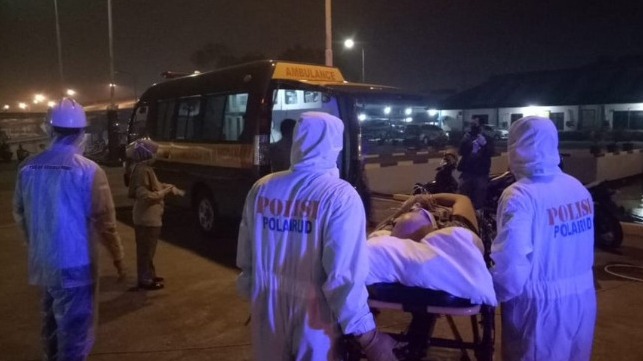 Despite obvious stroke symptoms, this seafarer was only allowed to go ashore for medical care after IMO, ILO and ITF petitioned the port state (IMO)
Despite obvious stroke symptoms, this seafarer was only allowed to go ashore for medical care after IMO, ILO and ITF petitioned the port state (IMO)
BY THE MARITIME EXECUTIVE 07-06-2020 08:35:06
IMO Secretary-General Kitack Lim has endorsed a set of industry guidelines for port states on how to accommodate seafarers’ medical needs in the COVID-19 era.
Onshore medical care is essential in the event of a serious medical emergency on board, including the full range of non-COVID ailments and injuries. Since the start of the pandemic, IMO has received reports of seafarers being denied the right to go ashore for treatment, including some crewmembers with life-threatening medical issues. In one case, a port state repeatedly refused an emergency medevac for a seafarer suffering from stroke symptoms.
The new recommendations are designed to address concerns about coronavirus exposure and ensure the safe transfer of seafarers for treatment. They include advice on monitoring for signs or symptoms of COVID-19 prior to disembarkation, isolation of suspected or confirmed cases, use of proper PPE, and minimizing exposure during disembarkation and transfer to a medical facility.
Lim urged IMO member states to put these recommendations into practice and to share them with the appropriate national agencies. “Seafarers are at the heart of everything IMO does. In the darkest hours of the pandemic, they have been selflessly delivering the goods we all need. But their own health and wellbeing are as important as that of anyone else. Now is time for governments around the world to deliver for seafarers, by ensuring they can access medical care without delay, whenever they need it,” Lim said.
The guidelines were developed by the industry’s main representative bodies, including ICS, IAPH, BIMCO, INTERTANKO, CLIA, INTERCARGO, InterManager and ITF, among others.
IMO also reiterated its call for port states to adopt industry guidelines on seafarer repatriation and crew change. These protocols ask national governments to designate seafarers as key workers and to facilitate timely crew change movements. While some port states have made efforts to facilitate crew changes, hundreds of thousands of seafarers remain stranded on ships, including many who have worked several months beyond their original contracts. Their reliefs are stuck at home, unable to join the ship and unable to work.
source: www.maritime-executive.com


